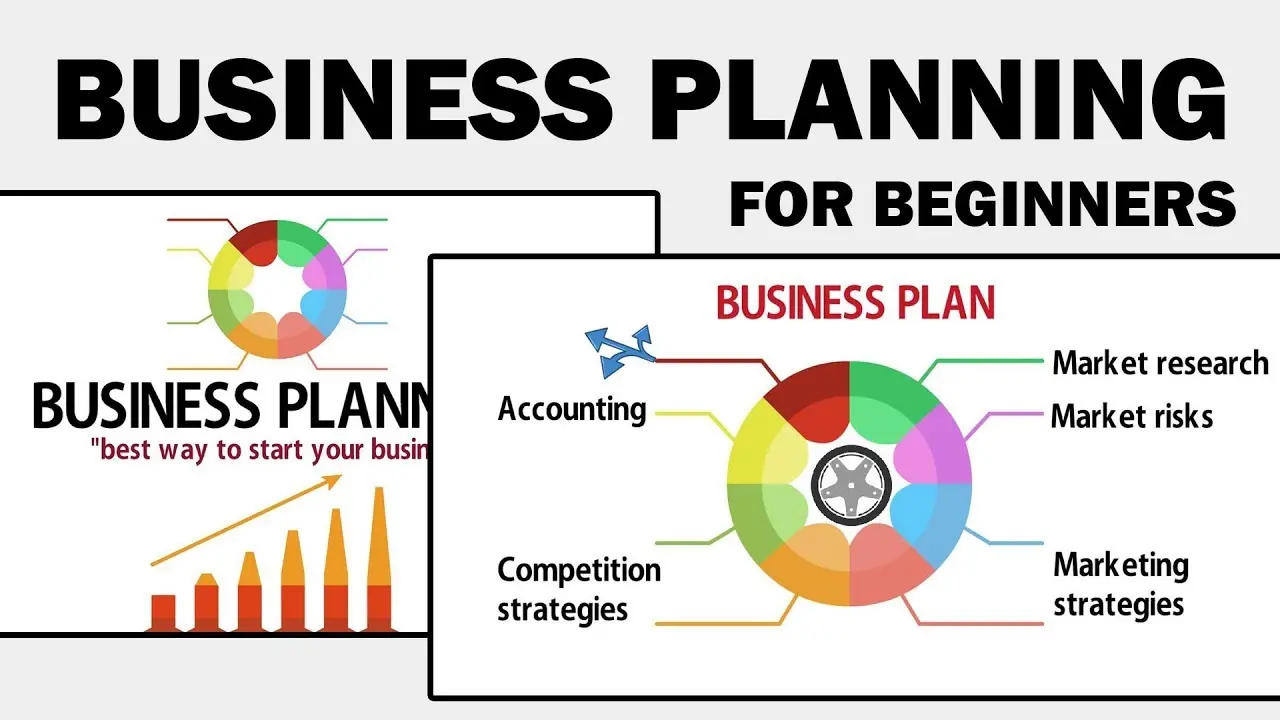Essential Business Planning for Beginners | Startup Guide

Introduction
Embarking on a business venture can be exhilarating yet daunting, especially for beginners. Effective business planning is crucial for laying a solid foundation and navigating the complexities of starting a new business. In this guide, we will explore the essential aspects of business planning for beginners, offering practical steps and insights to help you build a robust business plan that steers your entrepreneurial journey towards success.
Understanding Business Planning
Business planning is more than a mere document; it is a roadmap that guides your business through its initial stages and beyond. It helps you to articulate your vision, manage milestones, and secure funding. Here, we delve into why business planning is indispensable for every startup owner.
Why Is Business Planning Crucial?
- Direction and Clarity: Helps define your business goals and strategies for achieving them.
- Attract Investors: A well-crafted business plan is crucial to attracting investors and securing funding.
- Operational Planning: Assists in structuring your daily business operations efficiently.

Core Components of a Business Plan
A comprehensive business plan covers several key areas that collectively support your business idea. Each component plays a vital role in outlining how your business will function and grow.
Executive Summary
The executive summary provides a snapshot of your business. It lays out the crucial elements of your business plan, including your mission statement, product/service offerings, and basic information about your company’s leadership, employees, and location. It should also highlight critical financial information and what you are seeking from investors.
Business Description
Detailed insight into what your business does and what sets it apart from competitors is crucial. This section should include:
- Business Objectives: Short-term and long-term goals.
- Industry Overview: Current trends and future growth potential.
- Market Niche: Identification of the unique angle your business will take.
Market Analysis

Understanding your market is critical to ensuring your business’s success. This section should include:
- Target Market: Characteristics of your ideal customers.
- Market Needs: What specific needs will your business fulfil?
- Competitive Analysis: Overview of competitors and your business’s advantages over them.
Financial Planning
One of the most critical sections, financial planning, outlines your funding requirements, your detailed budget, and your financial projections. This part is crucial for attracting investors and includes:
- Startup Costs: All initial costs involved in starting your business.
- Revenue Projections: How much money you expect to make in the first few years.
- Break-even Analysis: When you expect to recover your initial investment.
Operational Strategy
Describe the logistics of how your business will operate day-to-day. Include information on:
- Production: How and where your products or services will be produced.
- Facilities: The physical locations necessary to operate.
- Staffing: Hiring needs and responsibilities.
Marketing and Sales Strategy
This section should outline how you will attract and retain customers. Include:
- Marketing Channels: How you will promote your business.
- Sales Strategy: Techniques you will use to sell your product or service.
Identify Your Target Audience
One of the many steps to writing a business plan is to identify your target audience. As a business owner, it’s important to remember that the product or service you’re offering isn’t only for some. Even if it should be popular with everyone, there are always certain people who would benefit more than others from what you offer. Ask yourself: Who will be most excited about this? Who stands to gain the most from my product/service? Who are the people most likely to purchase your product or service? Do some research and figure out who your target market is because it is only when you understand who your ideal audience is that you can begin strategizing the most effective marketing techniques to reach them. You can then refine and define these strategies so that they’re tailored perfectly for your target market.
Update & Review Regularly

One of the most essential steps to writing a successful business plan is to make sure you’re updating and reviewing it regularly. Review periodically (at least annually) as market conditions change or new opportunities arise that may require changes in strategy or execution plans outlined in the original document. After all, plan well, and you shall prosper. Regular reviews ensure that your ever-shifting situation isn’t missed, that appropriate measures are taken when necessary, that you have obtained professional assistance when needed, and that you maintain awareness of what’s going on in the industry – so don’t forget to give your plan the proper attention. An up-to-date business plan puts you ahead of the competition and helps you understand what needs to be done for continued success.
Frequently Asked Questions (FAQs) Regarding The Essential Aspects to Consider in Business Planning for Beginners:
Q: What are the critical components of a business plan for beginners?
A: A beginner’s business plan should include several key components: an executive summary, company description, market analysis, organization and management structure, service or product line, marketing and sales strategy, funding request (if applicable), financial projections, and an appendix. Each section serves to outline different aspects of the business, from operational plans to economic needs.
Q: Why is market analysis crucial in business planning?
A: Market analysis is crucial because it helps you understand the industry, market trends, customer demographics, and competitive landscape. This knowledge enables you to position your business effectively, tailor your marketing strategies, and mitigate risks associated with market entry. It also demonstrates to potential investors that you have a deep understanding of your market.
Q: How detailed should financial projections be in a business plan?
A: Financial projections should be detailed enough to offer a clear picture of your business’s potential financial health over the next three to five years. Include projected income statements, balance sheets, cash flow statements, and capital expenditure budgets. For beginners, it’s crucial to justify your projections with realistic assumptions based on thorough market research.
Q: What role does the organizational structure play in a business plan?
A: Your business’s organizational structure outlines the management hierarchy and responsibilities. It is vital for defining roles and responsibilities, ensuring efficient management, and communicating to stakeholders how your business will be run. This section should include bios of key team members and how their expertise will help achieve business goals.
Q: How can a new entrepreneur determine their business’s competitive advantage?
A: To determine a business’s competitive advantage, identify the unique benefits your products or services offer that others don’t. This could be superior quality, innovative features, lower prices, better customer service, or a specific niche you serve. Understanding and articulating your competitive advantage is crucial for positioning yourself in the market and attracting customers and investors.
Q: What is the importance of a marketing and sales strategy in a business plan?
A: A marketing and sales strategy outlines how you will attract and retain customers, as well as how you plan to reach your target market. It includes your sales tactics, marketing channels, pricing strategies, and advertising plans. This section is critical as it translates your business offerings into actual revenue, which is vital for the sustainability of the business.
Q: Should beginners include an exit strategy in their business plan?
A: Yes, including an exit strategy is advisable, even for beginners. It shows investors and other stakeholders that you have considered all aspects of your business lifecycle, including the potential sale of the business, passing it on to heirs, or even winding down operations. An exit strategy can reassure investors of your long-term planning and risk management.
Q: How detailed should my business plan be?
A: While detail is important, focus on being concise and clear. Overloading your plan with too much information can be overwhelming.
Q: How often should I update my business plan?
A: Review and update your business plan at least annually or as your business evolves.
Q: Can I write a business plan by myself?
A: Yes, but seeking advice from experienced business advisors or mentors can enhance its quality and feasibility.
Conclusion
Business planning for beginners is not just about documenting ideas but about creating a living document that evolves with your business. It serves as the foundation upon which your venture can grow and overcome any challenges. With these essential elements and a clear understanding of what to include in your business plan, you are better equipped to launch your business with confidence and clarity.
Remember, the most successful businesses start with a clear plan that acts as a roadmap to success. Start your journey with a vital step forward, armed with knowledge and a comprehensive strategy to guide you.






